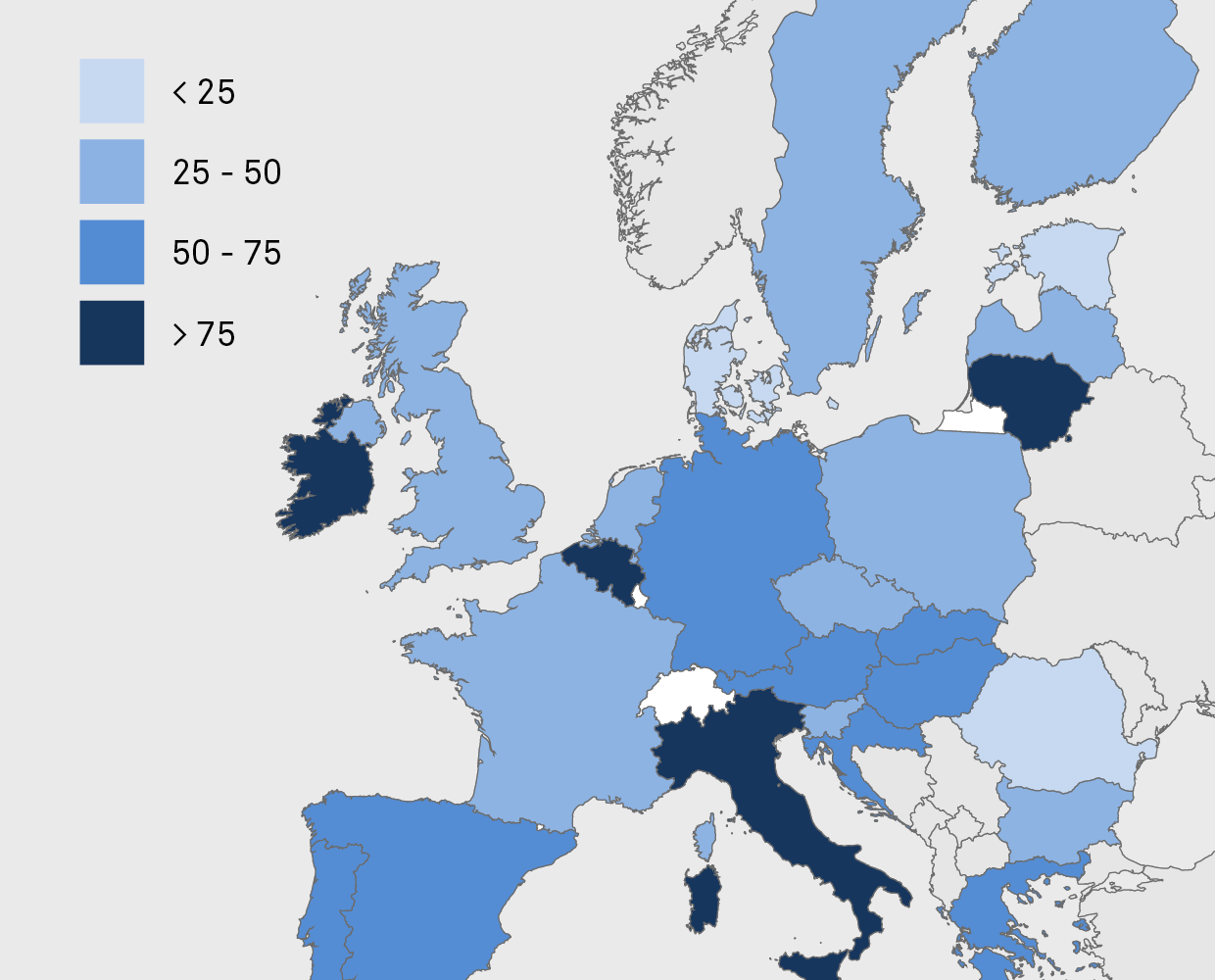How dependent on imports are we?
Ireland has few proven fossil fuel resources and we are still developing our renewable resources so we depend on imported energy to meet the balance of our needs 1.
Ireland’s energy import dependence, like Europe’s, has grown since 1995; it peaked at 89% from 2001 to 2005. Since then it has reduced slightly. In 2014 we imported 85% 2 of our energy needs compared with the European average of a little over 50%.
Figure 1 below shows how rapidly our dependence on imports grew between 1994 and 2001. This was because of the decline in gas production from the Kinsale fields, the delay in bringing Corrib gas to market, and the rapid increase in energy demand to meet the needs of the growing economy. These deficits and the increase in demand were made up by importing oil and gas to meet our needs.
